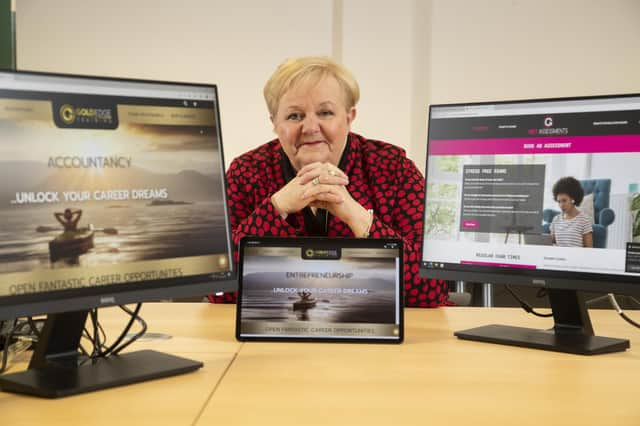Fareham training specialist urges people to be career savvy over job hopes


Christine Baxter, from Fareham and founder of Gold Edge Training, believes many people hold back from committing to career-change vocational training over cost fears.
She said: ‘Choosing the correct career path is vital. It is imperative that decisions are not based on matters of cost.
Advertisement
Hide AdAdvertisement
Hide Ad‘Initial training is cost-effective and the proactivity shown in taking a career-based course will demonstrate commitment to employers.
‘This will lead to job offers for competent learners and then employers – faced with ongoing skills shortages across many sectors – will pick up the cost of continuing training to qualification level.
‘I urge anyone considering the modern training course pathway to think seriously about their options and remember that a fairly modest outlay could secure that first post.’
Whiteley-headquartered Gold Edge Training, founded in 2012, offers more than 900 distance learning courses across business sectors, particularly accountancy.
Advertisement
Hide AdAdvertisement
Hide AdChristine said that although the cost of qualifying as an Association of Accounting Technicians (AAT) accredited accountant was upwards of £5,000 over three years, funding the initial level of study necessary to apply for the first job was around £500.
She added: ‘Become employment and education savvy and give yourself the best chance at employability. Study accredited and recognised qualifications and study with a training provider – both are huge ticks to an employer and both can be achieved at similar prices to self-study.
SEE ALSO: Portsmouth IT firm Transalis praises apprentice for her resilience throughout the pandemic
‘Potential employers are looking for the right qualification, study credibility and career commitment. Most will ask for a study reference from your training provider to measure credibility – and career commitment is satisfied by a willingness to pay for the first level of study.
‘Employers do not expect candidates to have studied the full qualification before gaining employment. They do, however, want to see that study is started – and once employment commences it is highly probably that employment contracts will include fully or partially paid study.
Advertisement
Hide AdAdvertisement
Hide Ad‘It is in the best interests of employers to invest in the future by shepherding employees to fully qualified status and, in many respects, is preferable to appointing an expensive senior.’
Christine, whose background is in industry, further education management and accountancy lecturing, urged students to take copious advice before choosing courses wisely.
